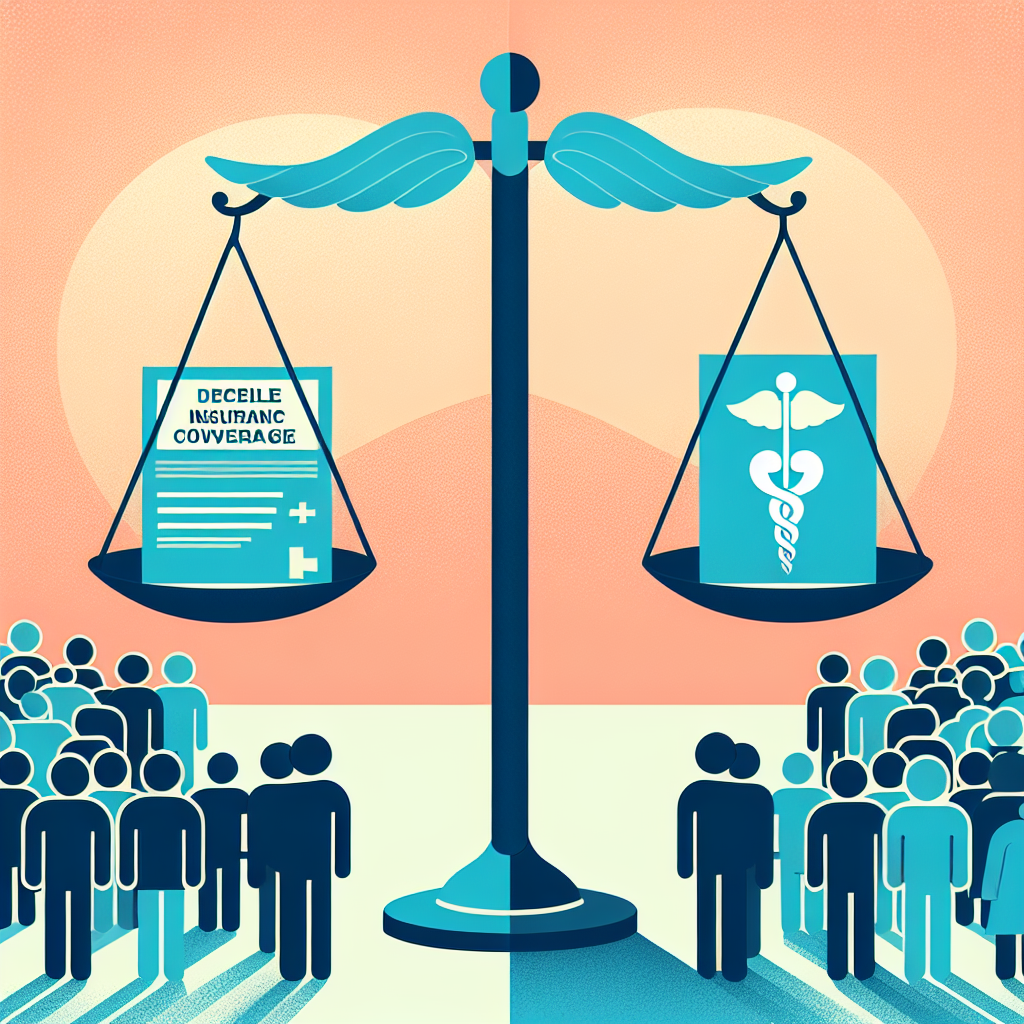Filed under Health Insurance on
Understanding Denial of Health Insurance Coverage

Health insurance is a critical component of financial planning and access to healthcare for millions of individuals. However, understanding the nuances of health insurance coverage, especially when it comes to denial, can be challenging. This article aims to shed light on the intricacies of denial of health insurance coverage, providing readers with essential insights and practical advice.
Causes of Denial of Health Insurance Coverage
Denial of health insurance coverage can occur for a variety of reasons. Understanding these reasons is crucial for navigating the complex world of healthcare. Let’s explore some of the common causes:
Pre-existing Conditions
One of the most prevalent reasons for the denial of health insurance coverage involves pre-existing conditions. Insurers may refuse coverage or charge higher premiums for conditions diagnosed before the start of the policy. However, recent regulations have imposed certain restrictions on this practice, providing some relief to consumers.
Inaccurate Application Information
Submitting inaccurate or incomplete information during the application process can lead to claims being denied. Insurance companies rely on the accuracy of the information provided to assess risks and set premiums.
Policy Exclusions
Every health insurance plan comes with specific exclusions, and claims falling under these categories will be denied. Reviewing policy details before purchase can prevent unexpected denials.
Impact on Individuals and Families
The denial of health insurance coverage can have significant implications on individuals and families, affecting both financial stability and access to healthcare.
Financial Burden
Without coverage, medical expenses can accumulate rapidly, placing a heavy financial burden on families. This can lead to debt, reduced savings, and long-term economic impacts.
Lack of Access to Necessary Care
Denial of coverage often means a lack of access to essential medical services, delaying treatment and potentially exacerbating health conditions. This can have serious repercussions on an individual's overall well-being.
Steps to Take After a Denial
Receiving a denial of health insurance coverage can be disheartening, but there are steps you can take to address the issue.
Review the Denial Letter
Carefully examine the denial letter to understand the specific reasons for the rejection. This will provide a foundation for any potential appeals.
Contact Your Insurance Provider
Engage directly with your insurer to gain clarity on the denial. Sometimes, simple errors can be corrected with minimal effort.
File an Appeal
If the denial seems unjust, you have the right to appeal. Prepare a comprehensive case, including medical records, recommendations from healthcare providers, and any other relevant documentation to support your claim.
Preventing Denial of Health Insurance Coverage
Prevention is often the best strategy. Consider these tips to minimize the risk of experiencing a denial of health insurance coverage:
Thoroughly Research Plans
Understanding the specifics of various insurance plans and comparing their benefits can prevent future denials. Look for plans that match your healthcare needs without risky exclusions.
Accurate and Complete Applications
Ensure that all information provided on applications is accurate and complete. Double-check details to avoid any discrepancies that could lead to denials.
Regularly Review Policy Details
Keeping abreast of any changes in your policy can alert you to potential issues before they arise, particularly during the renewal periods.
Industry Trends & Future Outlook
The landscape of health insurance is continuously evolving. Here are some trends to be aware of:
Regulatory Changes
New regulations can change the way insurers handle denial of health insurance coverage. Keeping informed about these laws can help consumers protect themselves.
Technological Advancements
Innovations in data analytics and record keeping could lead insurers to implement more streamlined processes, potentially reducing incidences of denial.
Consumer Advocacy
With greater access to information, consumers are becoming more empowered to challenge unjust denials. This transformative trend might encourage insurers to adopt more lenient policies.
Expert Opinions
Consulting experts can provide deeper insights into managing and preventing denials. Industry professionals emphasize the importance of engaging directly with insurers and advocating for transparency.
Dr. Emily White, a renowned healthcare policy analyst, suggests, “Proactive communication with insurance providers and understanding your policy inside out can significantly tilt the scales in your favor when facing a potential denial.”
Conclusion
The denial of health insurance coverage can be a daunting experience, but with the right knowledge and proactive measures, it is possible to navigate these challenges effectively. Understanding the underlying causes, taking strategic steps in response to denials, and staying informed about industry trends can empower you to manage your health insurance confidently and ensure access to necessary healthcare services.
In an ever-evolving healthcare landscape, staying informed and assertively engaging with insurance providers remain your best tools for managing your health insurance effectively. Remember, as consumers, you have the power to influence change and demand more transparent policies from insurers.





